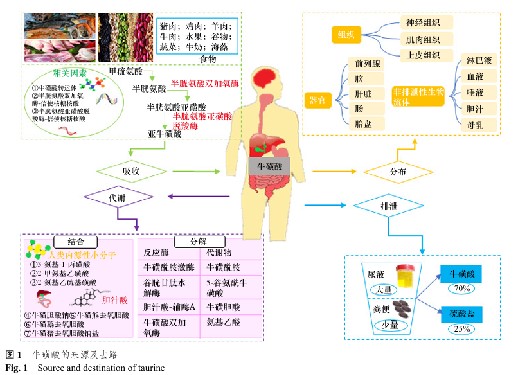Taurine is distributed in biological tissues, organs, and body fluids. Taurine can bind with bile acids (BAs) and promote bile excretion by enhancing the water solubility of bile, effectively promoting the digestion and absorption of lipids, fat soluble vitamins, and other fat soluble substances.
There are two pathways for the excretion of taurine: one is in the form of free taurine excreted from the kidneys, which is the main pathway, and the other is in the form of taurocholic acid excreted through the biliary tract. The kidneys can regulate their excretion of taurine based on the amount of taurine ingested from food, maintaining a steady state of taurine concentration in the body. In a state of taurine deficiency, the kidneys can reduce the loss of endogenous taurine through reabsorption. When taurine is excessive, the excess is excreted with urine.
Therefore, taurine will not accumulate excessively in the body due to excessive intake.








